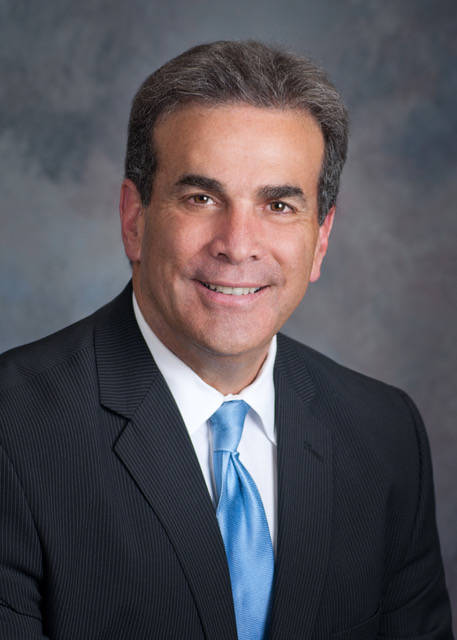
Nevada has long touted itself has having a favorable business and tax climate as it lures companies from other states and watches startups spring up.
But a growing number of business leaders are concerned about the quality and availability of the state’s workforce as evidenced by this year’s survey conducted by Bank of Nevada.
In a survey of 120 business leaders, some 62 percent cited their concerns about the workforce, up from 51 percent in the 2017 survey.
Education remains the No. 2 cited challenge but it’s the same number as last year at 50 percent. Health care costs came in third at 39 percent, which is up from 37 percent in 2017. Recruiting employees, in a nod to the workforce concerns, came in fourth at 27 percent. That’s up from 21 percent a year ago.
The survey also offered some good news that’s been detailed in other surveys done earlier this year. Some 87 percent of business leaders said they are very confident or somewhat confident that their company’s revenue will grow over the next year.
Seven in 10 businesses said there are more growth opportunities for their company than there were three years ago.
Bank of Nevada CEO John Guedry said while Southern Nevada’s business climate allows many companies to thrive, there are issues that are holding the state back from even more success.
Guedry said there were more concerns about the educational system in Southern Nevada with nearly six in 10 citing that as a major issue compared to 50 percent statewide. Southern Nevada business leaders also had a greater concern about a lack of economic diversity at 23 percent versus 18 percent statewide.
“They continue to have concerns about the workforce and education system, and that’s an increasingly important challenge we have to figure out how to overcome as we start to see morediversification as the recession,” Guedry said. “It’s becoming a greater concern that we’re falling short in meeting that requirement that we are preparing our workforce.”
Problem solving (52 percent), math and science skills (52 percent), self-motivation (48 percent), leadership (48 percent) and communication skills (47 percent) were identified as the top weaknesses among the state’s labor pool.
The region isn’t as dependent on gaming and hospitality, and construction hasn’t fully recovered, Guedry said. The economy has bounced back because jobs have been “cropping up in many other areas, and those areas that required a higher level of educated workforce.”
The state has identified key industries to target by leveraging existing assets, such as Switch and renewable energy. There are a lot of opportunities in health care as well, Guedry said.
“If you go through various industries the state and regional development agencies are targeting, virtually every one requires a much higher skill set than our current service sector workforce,” Guedry said.
That means more high school graduates will require some vocational training beyond their degree or post-secondary higher education, Guedry said.
“If we’re going to grow those industries and not be dependent on recruiting a workforce from out of state, we need to figure out to prepare our workforce for those jobs,” Guedry said. “We have a growing number of jobs that aren’t in those traditional service sector industries, and we have a workforce completing a high school degree (who) aren’t going to post-secondary or vocational training, which is certifications in technology or apprenticeships in the trades. They just don’t have those skill sets, and as more and more businesses are seeing opportunities to grow, as we come out of the recession, they recognize we don’t have the caliber and quantify of employees based in the market, today, to meet those demands. And it’s probably going to get worse if we don’t figure it out.”
Some 62 percent of business leaders said the action that would have the most positive impact on the state would be increasing the pool of STEM graduates. Some 69 percent of Southern Nevada business leaders identified as improving K-12 education as the top action local government could take to improve the business climate for their company. Nearly half (47 percent) said providing more community college training would help.
Some 52 percent of Southern Nevada respondents said state government could improve the business climate by increasing K-12 education funding.
Guedry said the educational system is starting to move in the right direction, although there are concerns to overcome.
There’s the shake-up at UNLV with the departure of President Len Jessup. The decentralization of the Clark County School District has not moved at the timetable that was mandated.
Similar to last year’s survey results, Nevada’s business leaders give the state’s workforce high marks for a number of strengths, Guedry said. Some 62 percent said there was a willingness to learn, 43 percent cited their flexibility, 40 percent mentioned teamwork mentality and 34 percent cited multicultural sensitivity.
The survey showed that many executives said there were many benefits for doing business in Nevada. Among Southern Nevada respondents, 58 percent cited a favorable tax structure; 56 percent mentioned the weather. Some 43 percent said the area’s low cost of doing business; and 32 percent cited quality of life. Another 29 percent cited an entrepreneurial mindset; 26 percent cited a proximity to customers; and 10 percent cited a top convention destination.
The favorability rating about taxes has gone up and concerns about them has lowered from previous surveys, Guedry said. He said that’s most likely from the federal cuts approved in late 2017.
In what’s been mentioned in other surveys over the years, business leaders said enhancing Nevada’s image would help with the business climate. That number was 59 percent. Business leaders have said over the years that the Sin City image has made it more difficult to recruit people to Las Vegas.